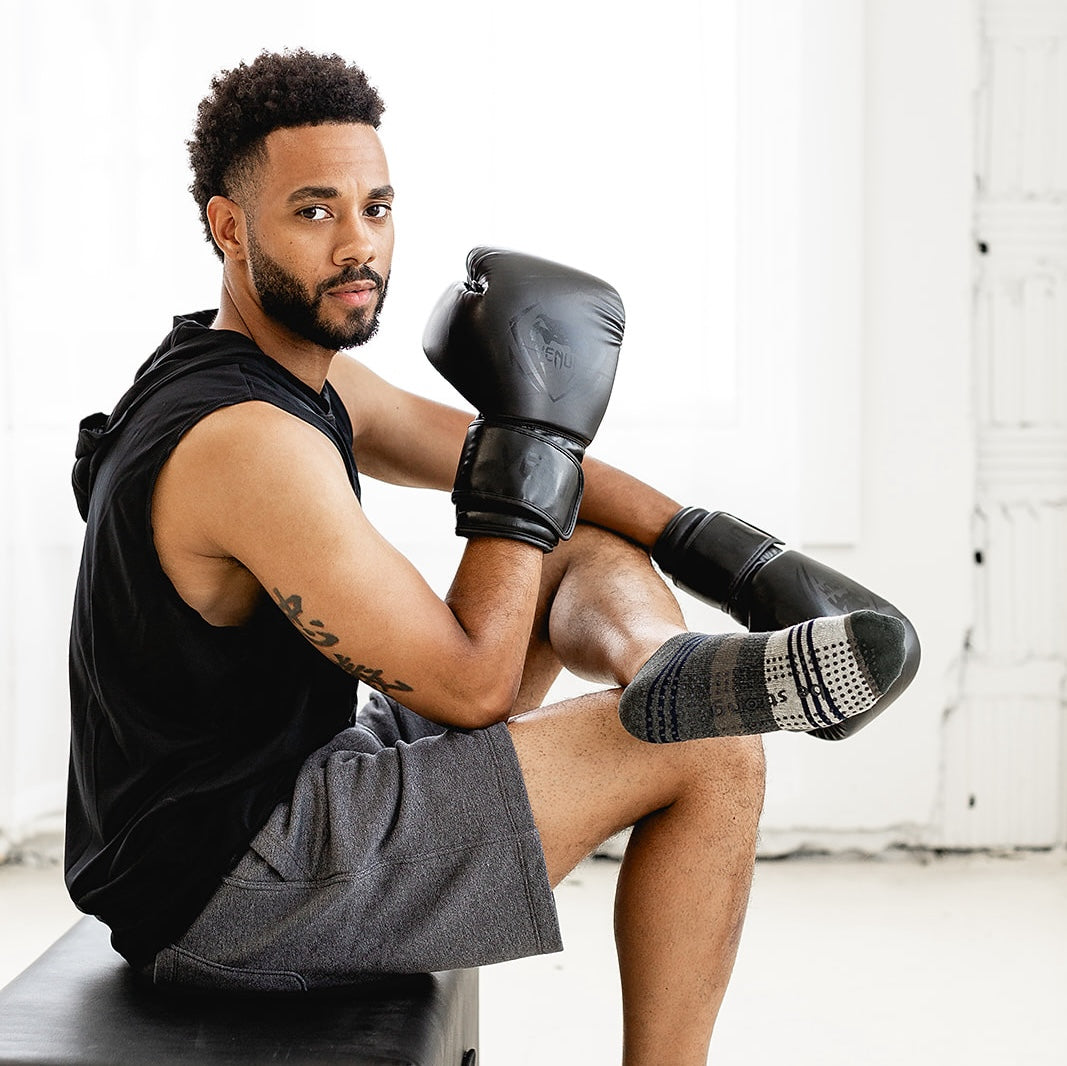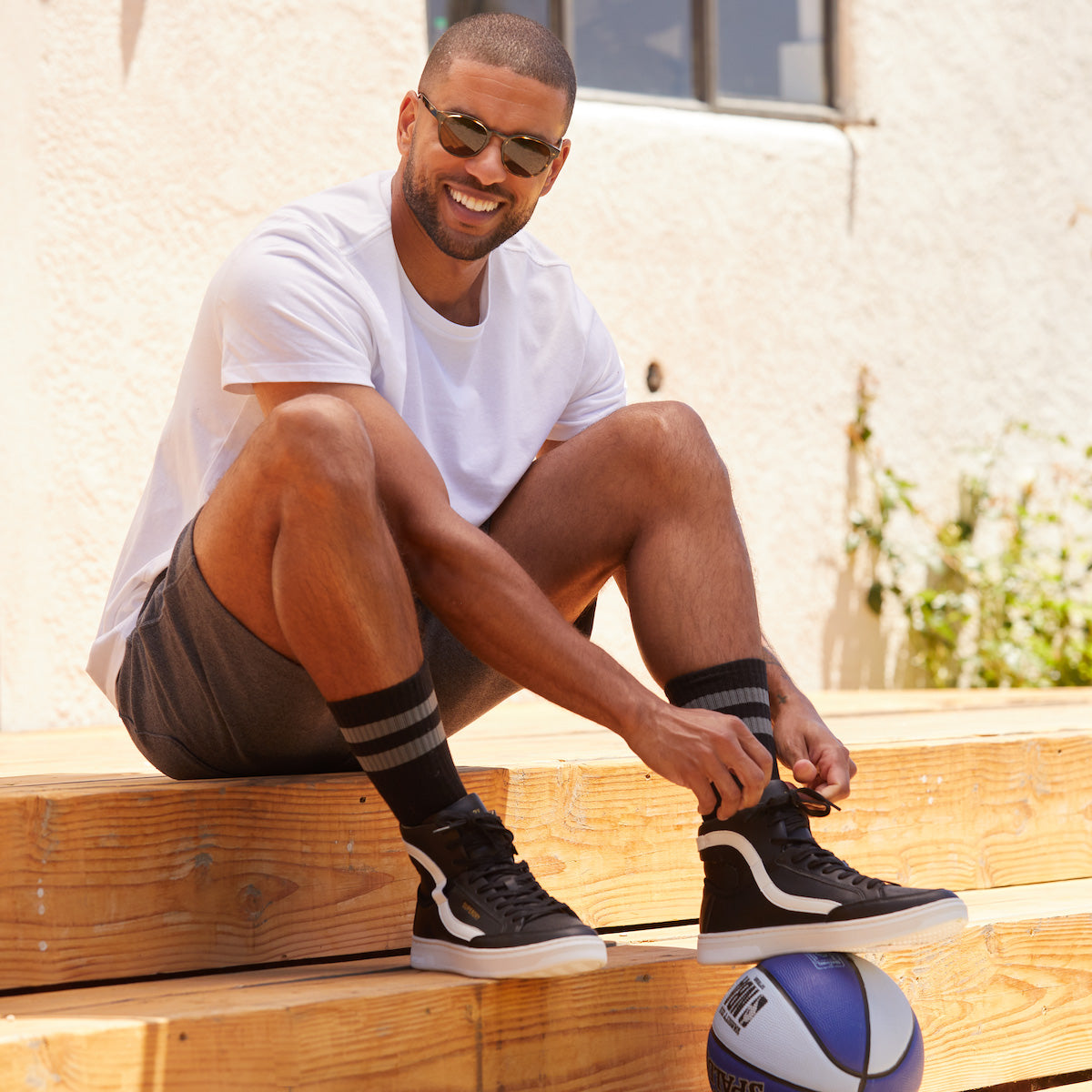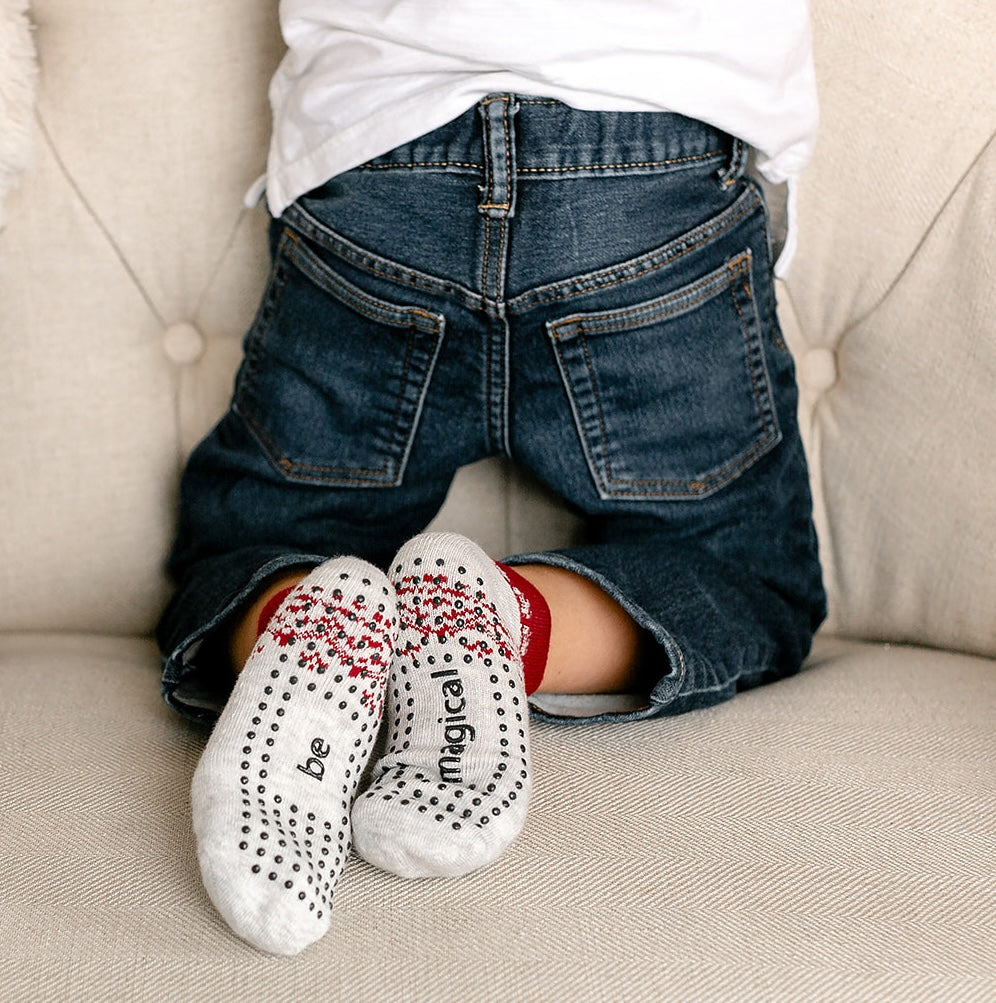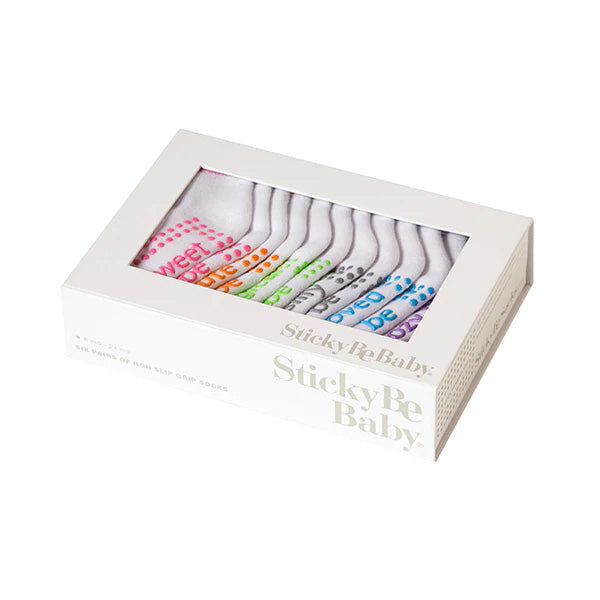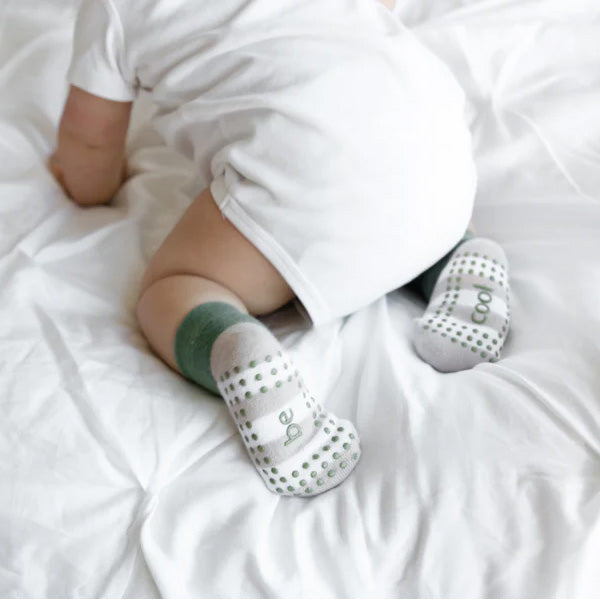Use code MOMLOVE25 for 25% off your order
Use code MOMLOVE25 for 25% off your order
Women
Men
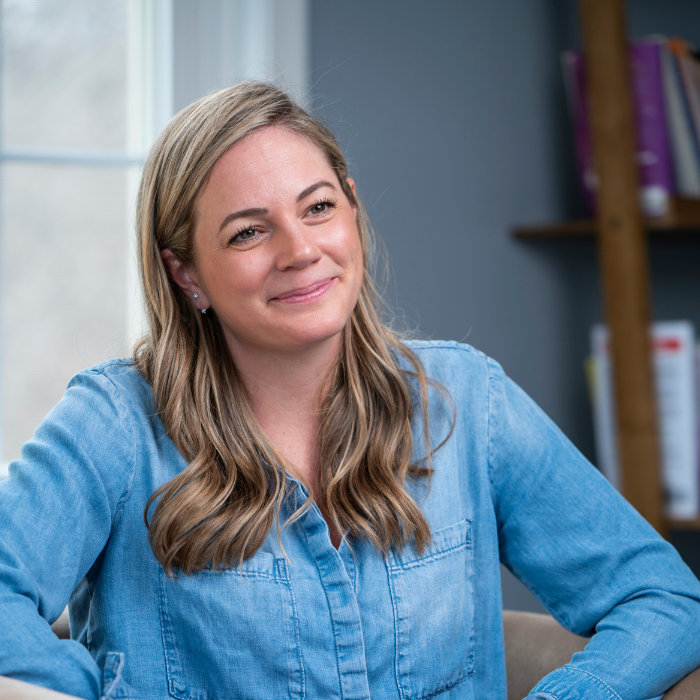
April 22, 2024 8 min read
Healing and Helping Parents with Annie Phillips and Healing Home Counseling Group
Through her own journey with motherhood, Annie Phillips experienced the joys and gifts of the experience that are so often portrayed in media and larger society. But, she also endured the hardships, mental health issues and identity questions that are very common—but far less acknowledged—for many parents. Even as a licensed clinical social worker and psychotherapist with years of experience, she noticed a real issue with availability of resources and support. So, she decided to make it her mission to fill this important gap in care. Now, Healing Home Counseling Group offers everything in perinatal mental health care, from individual and couples sessions, to postpartum planning, educational resources, group therapy and more.
An athlete since childhood, Phillips played soccer, hockey, volleyball, tennis and basketball, challenging the gender norms, since her family included two older brothers. Now, she still finds movement an important and steadfast mental release, and she folds physical release into her own mental health routine. Below, she shares more about the importance of maintaining mental health in a variety of ways, why the perinatal population needs and deserves so much more care, how she and her practice are helping the cause, and her top tips for new or soon-to-be parents.

SBS: What was your professional path?
Annie Phillips: I’m a proud graduate of the clinical social work program at University of Michigan (Go Blue!), and I’m a licensed clinical social worker and psychotherapist. I spent the beginning of my career working at Children’s Hospital of Michigan in Detroit, where I gained the necessary knowledge and training to support families during very difficult transitions in life. I have worn many hats in my career in the mental health field, but after having children of my own and working through my own struggles with postpartum anxiety, I was drawn to working with new mothers and fathers and those on the journey of parenthood. I am also certified in perinatal mental health through Postpartum Support International, as well as EMDR-trained through The Touchstone Institute, with a specialty in Postpartum Trauma.
SBS: How did the idea for Healing Home Counseling Group come about?
AP: After going through two pregnancies with my business partner, Priya Rednam-Waldo, while working at Children’s Hospital of Michigan, we decided that the transition into parenthood must be better in this country. Mental health issues are the number one pregnancy complication, and yet, there are very few resources or therapists that have the proper training to guide individuals through this very vulnerable and transformative period of life. We envisioned a sanctuary where individuals and couples could find solace, understanding, and expert guidance during the transformative stages of starting or expanding a family.
Healing Home Counseling Group is a boutique practice that emphasizes not only the well-being of their clients, but also of all their staff. All of the clinicians are perinatal mental health (PMH) trained or certified. Some of our staff are also EMDR (eye movement desensitization reprocessing) trained, with an emphasis on BIPOC and perinatal trauma.
We offer individual therapy (various modalities), couples therapy, postpartum planning, group therapy, educational resources, and a digital course, as well as events and purposeful gatherings in our community, nationally and internationally.
SBS: How did you form the practice and team?
AP: In three years, Healing Home Counseling Group has gone from two employees to nine, and we are continuing to grow. I credit this to our reputation and our emphasis on community, education, engagement, and high standards of being experts in our field. We have gained a well-deserved reputation in our community through hard work and dedication to our mission and values. We believe that everyone deserves to be seen, valued, and supported on the journey of parenthood.
SBS: What was important in making your dream become a reality?
AP: Not being afraid to fail and taking risks. Being at peace with failure allows you to be emotionally and mentally well when an aspect of your dream does not work out. We have engaged in endeavors while building our practice that did not work out. Instead of focusing on the failure, I have used this as a positive learning opportunity for future growth.
SBS: What was your personal perinatal experience like?
AP: My personal experience with perinatal mental health was the motivation to creating an empowering space to regain strength and restore peace in the home, which we are all deserving of. I felt very lost in my identity and career after welcoming my first child into the world. I suffered silently from postpartum anxiety, and as a mental health professional, I did not have access to the necessary resources and tools to help treat my postpartum anxiety in a timely and effective manner. If a mental health professional is unable to access these resources, how is the general population coping with the transition to parenthood? You will, of course, experience painful moments postpartum, but you should never suffer, and especially, you should never suffer alone.
SBS: What was the original mission, and how has it evolved?
AP: Our original mission was to provide the most compassionate and informed therapeutic care to those on the journey of parenthood. We have now realized that we can provide resources and education nationally and internationally by engaging in amazing blogs like this and providing relevant and informed education surrounding perinatal mental health. This led us to develop a postpartum-planning educational course that is meant to be collaborative between both mom and dad.
Our digital postpartum planning course is a comprehensive resource. It consists of 15 modules, each carefully curated to address the various aspects of postpartum wellness and adjustment. From managing emotions and expectations to practical tips for self-care and communication, our course covers it all. One of the standout and unique features of our course is the accompanying couple’s workbook, which serves as a personalized guide for the couple on how to navigate the postpartum period through effective and positive communication. At Healing Home Counseling Group, we recognize the tremendous benefits of partner involvement and collaboration. This helps the couple to create a solid foundation that encourages shared goal setting, and mutual support between partners as they navigate the joys and challenges of parenthood together.
SBS: What is unique about the perinatal population that your group supports?
AP: When seeking therapy during the perinatal period it is very important that you are connected with a provider who has a background and training in perinatal mental health. The transition into parenthood is a very vulnerable and transformative period, and the mental health concerns present differently. A perinatal mental health professional is an expert in this period and understands the complexities of treating patients during this magnificent, yet very challenging, stage of life.
SBS: What are the top three issues facing the perinatal population that you see in your practice?
AP: First, most people in this population are victims to a society that does not support new parents during this major life transition. We are one of six countries that does not have any type of national maternity leave. Most women and men need to return to work shortly after the birth of their baby, which causes a myriad of problems. I could go on for days on this topic!
Next, access to care: There are many barriers to clients receiving access to proper care during pregnancy and postpartum. Many women are lost in the system and are not referred to care when obvious signs of a perinatal mood and anxiety disorder have been present. Once someone is screened and told they need care, there are not enough providers that are well educated and trained in this area.
And, equitable parenting: The modern-day mother is evolving every day. Most households are dual income, yet women tend to hold the mental and physical load of parenting, on top of being the bread winner or maintaining a full-time job. This often leads to caregiver burnout, causing depression and anxiety. Equitable parenting still has a long way to come, but with more education and resources, there seems to be a lot more discussions surrounding this issue.
SBS: What advice do you have for single parents?
AP: Build a support network: Surround yourself with friends, family members, or support groups who can offer assistance and emotional support when needed. Many single parents feel the need to stay strong and maintain an image that they ‘have it all together.’ It’s okay to be vulnerable and ask for help. I see many single parents sacrificing self-care. Parenting is not meant to be done alone: Don’t make yourself a martyr. Be a good representation of how you would love your children to take care of themselves. If this means more screen time on the weekends so you can get a good workout in, remember: Your kids will be okay!
SBS: What about advice for non-traditional families?
AP: Celebrate the unique qualities and dynamics of your family structure. Teach your children to be proud of their unique family, and it will only lead to them being more loving and accepting of others. Prepare your children from a young age to educate others about your family structure and address any misconceptions or prejudices that others may hold. Providing them with the correct phrases and information will empower them to advocate for their family’s unique qualities rather than experiencing feelings of shame. Ultimately, what matters most is the love and acceptance you have for each other as a family. This love will spread to other relationships and facets of your children’s lives.
SBS: Do you have any overarching advice for this population?
AP: Ultimately, the best mental health advice is personalized to the individual and encompasses a holistic approach that addresses physical, emotional, social, and spiritual aspects of well-being. It’s important to prioritize self-care, seek support when needed, and engage in practices that promote resilience and psychological growth. In regard to perinatal health, do not feel ashamed to seek help. It does not make you a bad parent if you are struggling. No one is immune to trauma and mental health concerns, especially during this very transformative period of life.
SBS: What's your own health and wellness routine?
AP: Exercise at this point in my life is more about my mental health than physical health. I truly believe in the mind-body connection, and if I am unable to engage in exercise, I notice my mind suffering more than my body. As a former athlete, I have had to tone down the intensity of my exercises and focus on being present and mindful in my body. I also like to mix up my routine. On a weekly basis I engage in weightlifting, cardio, walking, hiking, reformer Pilates, and of course, the Lagree Method (I have a Body Burn studio a few miles from my house). I also play in a women's soccer league, which is so empowering for me. My two little girls love to come watch me play!
The best, zaniest part of being Annie: I love seeking experiences that are challenging and totally outside of my comfort zone. For example, I lived in rural South Korea after I graduated undergrad. I did a 30-day hike to Everest Base Camp and went a month without showering. Now that I have kids, these adventures have become more localized, but I am not shy to try new opportunities that area presented to me, even if they seem unrealistic and a little bit zany!
Annie’s SBS Mantra: Be Kind and Be Fearless: As a female entrepreneur, you can make it to the top of your field by collaborating with other female entrepreneurs instead of working against them. Collaborating with other women entrepreneurs has taught me that I can be fearless, and I do not have to compromise my values and integrity to build a thriving and successful business.
Annie’s Metro Detroit Faves:
Healthy Restaurant: Beyond Juicery & Eatery
Splurge Restaurant: Tiger Lilly
Nightlife Spot: My couch and a cozy blanket. Sleep is more important than nightlife!
Yoga Studio: Citizen Yoga Studio
Fitness Studio: Body Burn Lagree or Lean Body Studio
Fun Activity: Michigan has beautiful golf courses, and my family belongs to Pine Lake Golf Club.
Calming Activity: I find physical exertion calming, so walking my beautiful elderly dog.
Online Resources: Our postpartum Planning Course: https://healinghomegroup.com/postpartum-planning-course/;to find a perinatal trained therapist, try https://www.postpartum.net/?utm_source=google_cpc&utm_medium=ad_grant&utm_campaign=cbc_ggrant_CBCGrant%7CBrandedMXC&gad_source=1&gclid=EAIaIQobChMIkKiFt6mhhQMVEMzCBB21kQCkEAAYASAAEgIXq_D_BwE
Books: A New Earth by Ekhart Tolle; Good Moms Have Scary Thoughts by Karen Kleiman; The Body Keeps the Score by Dr. Bessel Van Der Kolk; Screaming on the Inside by Jessica Grose
Movie: I always recommend the Pixar movie Inside Out for a good representation of all the various parts of our brain.
Leave a comment
Comments will be approved before showing up.



